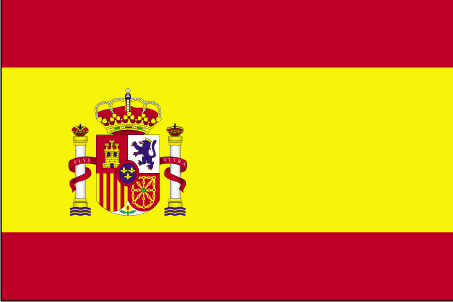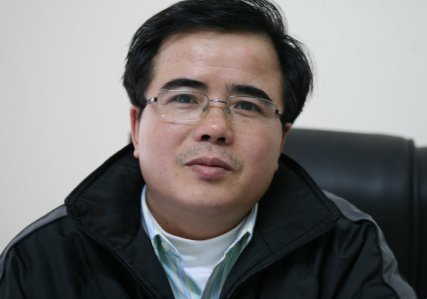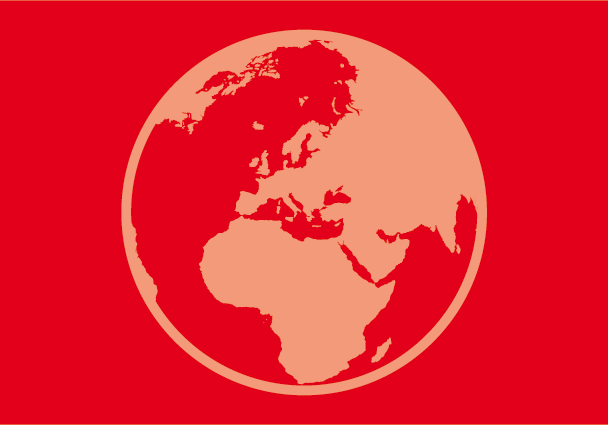
Feb 21, 2014 | Advocacy, News, Non-legal submissions
The ICJ and other human rights organizations issued a public statement calling on Spanish lawmakers not to pass draft legislation that, if approved, would seriously limit Spanish courts’ ability to investigate and prosecute serious crimes under international law.
The draft legislation, tabled in Parliament by the Popular Party (PP), provides that, for cases involving allegations of genocide, crimes against humanity and war crimes not occurring on Spanish territory to be investigated and prosecuted in Spain, the suspect must either be a Spanish national or a foreigner habitually resident in Spain or a foreigner who is in Spain, whose extradition has been denied by Spanish authorities.
For case of torture and enforced disappearance, the proposed legislation requires that the suspect be a Spanish national or, alternatively, that the victim be a Spanish national at the time when the crime was committed and that the suspect be present in Spain when jurisdiction is assumed.
Where these conditions are not met, the proposal would allow Spanish courts to hear cases for those crimes for which prosecution is required by international treaties where the suspect is a foreigner on Spanish soil, so long as Spain has received and denied an extradition request.
The ICJ and other organizations stressed in their statement that if enacted, this legislation would close the doors of Spanish courts to certain victims of gross human rights violations who are unlikely otherwise to be able to obtain justice, particularly within their own jurisdictions.
Spain-Universaljurisdiction-NGOsJointStatement-2014-eng (download the joint statement in English)
Spain-Universaljurisdiction-NGOsJointStatement-2014-SPA (download the joint statement in Spanish)

Feb 18, 2014 | Advocacy, News, Non-legal submissions
The ICJ condemned the decision by the Court of Appeal of the Supreme People’s Court in Hanoi to uphold the conviction and sentencing of lawyer and human rights defender Le Quoc Quan to 30 months imprisonment.
The ICJ called on Viet Nam authorities to release him immediately.
“The decision of the Court of Appeal is regrettable but not unexpected,” said Sam Zarifi, ICJ’s Regional Director for Asia and the Pacific. “The ICJ has repeatedly criticized the lack of independence of the courts in Viet Nam. This is a political case and the government of Viet Nam has again used the courts to punish a significant critical voice.”
Today’s appellate hearing lasted for four hours. Thirty minutes after the hearing ended, the court released its decision upholding Le Quoc Quan’s conviction.
Le Quoc Quan, a lawyer who was illegitimately barred from practice for challenging government human rights violations, was convicted on 2 October 2013 of tax evasion under section 161 of the Vietnamese Penal Code. The ICJ had criticized Le Quoc Quan’s conviction, pointing out that he did not receive a fair trial.
The Court of Appeal upheld Le Quoc Quon’s sentence with time served since his arrest on 27 December 2012 to be taken into account.
The Court of Appeal also upheld the earlier order made by the People’s Court of Hanoi for Le Quoc Quan’s company to pay 645 million VND (approximately USD30,000) and a fine of 1.3 billion VND (approximately USD60,000), for alleged unpaid taxes.
Le Quoc Quan has been on a hunger strike protesting his conviction since 1 February 2014. He was so weak that it was difficult for him to stand up during the hearing.
“Le Quoc Quan’s faulty trial violated right to an independent, impartial tribunal, and the appeal process also fell short of international fair trial standards, including under the International Covenant on Political and Civil Rights, to which Vietnam is a party,” Zarifi said.
The public was barred from entering the courtroom during today’s hearing and only Le Quoc Quan’s wife, mother, and lawyers were allowed inside.
Le Quoc Quan was also not allowed to meet with his lawyers in the last few days leading up to the appeal hearing.
His lawyers tried to visit him in prison at least twice last week, but they were barred from seeing him.
Le Quoc Quan’s lawyers also confirmed to ICJ that Le Quoc Quan was not allowed to meet and communicate with his lawyers immediately after his conviction by the People’s Court of Hanoi and had to file an appeal on his own.
In drafting his appeal, all legal documents and files pertaining to his case were withheld from him.
The UN Human Rights Committee has emphasized that all convicted persons like Le Quoc Quan must be given copies of a duly reasoned, written judgment of the trial court, as well as other documents such as transcripts, so that they may be able to effectively enjoy their right to appeal.
Under Viet Nam’s laws, lawyers of convicted persons cannot file an appeal on behalf of their clients.
It is only after the appeal has been filed and accepted by the appellate court that the convicted person may identify the lawyer of his choice.
The chosen lawyers are recognized and allowed to participate in the case only after the court approves their application for a “defence counsel’s certificate” or “advocacy certificate”.
The UN Basic Principles on the Role of Lawyers provide that no court shall refuse to recognize the right of a lawyer to appear before it on behalf of his client, unless the lawyer has been disqualified in accordance with domestic law.
“Viet Nam’s courts operate in violation of international standards that clarify that lawyers must be allowed to assist their clients in filing an appeal,” Zarifi said.
Le Quoc Quan cannot appeal the decision of the Court of Appeal under the article 248(3) of the Criminal Procedure Code of Vietnam, which states that decisions of the Court of Appeal are final and legally binding from the date of their pronouncement.
The lawyers of Le Quoc Quan, however, are said to be considering filing a petition on procedural issues on this case.
On 14 February, the ICJ submitted a written statement to the Human Rights Council (see below) under the title “Violations of the right to counsel of Viet Nam human rights defender Le Quoc Quan”.
In the statement, the ICJ called on the UN Special Rapporteur on the Independance of Judges and Lawyers to reiterate her request to the Government of Viet Nam to extend an invitation to her mandate to undertake a mission to the country.
The ICJ also called on Viet Nam to amend its laws expressly to ensure that anyone deprived of liberty, including human rights defenders, are given access to counsel from the moment of deprivation of liberty or at latest within 24 hours of detention.
Viet Nam should also consider including in its laws penalties for law enforcement authorities who do not honour such provisions.
Contact:
Emerlynne Gil, ICJ International Legal Adviser for Southeast Asia, t +66 2 619 8477; email: emerlynne.gil(a)icj.org
Craig Knowles, ICJ Media Consultant, t +66 81 9077653; email: craig.knowles(a)icj.org
Viet Nam-Human Rights Council-ICJWrittenStatement-advocacy-2014 (full text in pdf)

Jan 21, 2014 | Advocacy, Non-legal submissions, Position papers
The ICJ submitted today its contribution to the public consultation of the European Commission on the future of home affairs policies in the European Union.
In its contribution, the ICJ highlighted the need to increase human rights protection in EU home affairs legislation and in its implementation.
The ICJ submission recommends an increased monitoring of the human rights compliance of draft legislation; calls for increased transparency in the legislative process; and for a better use of infringement proceedings by the European Commission to ensure the effective implementation of EU home affairs legislation with particular attention to the protection of human rights.
The ICJ addressed, in its contribution, the importance of a correct and human rights compliant implementation of the new Common European Asylum System, and the need of further reforms in the EU legislation on asylum, migration and border control.
Finally, the ICJ stressed the poor record of the EU institutions, besides the European Parliament, in ensuring accountability for human rights violations committed in countering terrorism, for example in the cases of the National Security Agency (NSA) surveillance programme scandal and in the cases of alleged complicity of European States in the US-led system of renditions and secret detentions.
EU-PublicConsultation-ICJ-FutureHomeAffairs-2014-Final (download the contribution)

Nov 29, 2013 | Advocacy, Non-legal submissions
The ICJ’s Director of the International Law and Protection Programmes, Alex Conte, today delivered the keynote address at the launch of the OSCE manual on Human Rights in Counter-Terrorism Investigations.
Responding to the challenges faced by some OSCE participating States in operationalizing human rights when conducting counter-terrorism investigations, the OSCE Office for Democratic Institutions and Human Rights (ODIHR) and the OSCE Secretariat’s Transnational Threats Department / Strategic Police Matters Unit jointly developed a manual on Human Rights in Counter-Terrorism Investigations. The manual adopts an operational approach to different phases of counter-terrorism investigations and linking them to relevant human rights standards.
The keynote address focussed on the link between human rights protection and effective counter-terrorism practices; and on how human rights are themselves useful tools to successfully prevent and counter terrorism. It identified five law, policy and practical reasons that human rights compliance is required and/or contributes to the prevention and countering of terrorism:
- Human rights compliance while countering terrorism is an international obligation, recalling that States’ right and duty to combat terrorism is part of international and regional human rights law stemming from the duty of States to protect individuals under their jurisdiction from interference with their enjoyment of human rights, including the rights to life and security;
- Human rights compliance at the investigative stage of counter-terrorism cases means that there will be an exponentially greater chance that the precious resources dedicated to terrorist investigations will result in the admissibility of evidence;
- Human rights compliance at the investigative and pre-trial stages of counter-terrorism cases (considering the impact of prolonged detention without trial or without charge) gives rise to a greater prospect of achieving a sound conviction;
- Bringing perpetrators of terrorist acts to justice through effective (i.e. human rights-compliant) investigation and prosecution contributes to the realisation for victims of terrorism of their rights to truth and reparation; and
- Human rights compliance not only assists the short-term objectives of effective counter-terrorism investigations and prosecutions, but is also the essential basis for a sustainable, long-term approach to the countering of terrorism by avoiding further conditions conducive to the spread of terrorism.
ICJ-OSCE-ManualOnHumanRightsInCounterTerrorismInvestigations-LaunchEvent-KeynoteAddress-NonlegalSubmission-2013 (download keynote address in PDF)
OSCE_HRCT_Manual (download manual on Human Rights in Counter-Terrorism Investigations in PDF)

Nov 5, 2013 | Advocacy, Non-legal submissions
The ICJ has called on States that are candidates for membership to the UN Human Rights Council to do more to respect human rights at home and at the international level.
On 12 November, the United Nations General Assembly will elect 14 new members to the Human Rights Council.
The ICJ added its name to a joint letter, delivered by International Service for Human Rights on behalf of 40 NGOs from all regions of the world, emphasising the need for candidate states to uphold the highest standards of respect for human rights, the fullest cooperation with the Human Rights Council, and to refrain from impeding the access of individuals and civil society to international human rights mechanisms.
HRC-GAElections-JointNGOLetter-NonLegalSubmission-2013 (download joint open letter in PDF)

Aug 22, 2013 | Advocacy, Non-legal submissions
With other nongovernmental organizations, the ICJ calls on the Human Rights Council to select candidates for Special Procedure mandates on the basis of technical, professional and other objective requirements.
Ahead of the 24th session of the Human Rights Council (9 to 27 September 2013), several NGOs, including the ICJ, today joined in submitting written statements to the UN concerning the selection of candidates for membership in the Working Group on Arbitrary Detention and the Working Group on Enforced and Involuntary Disappearances and for the mandate-holder of the Special Rapporteur on the situation of human rights defenders. The statements identify a checklist intended as an interpretive aid for the selection of candidates based on qualifications and skills; relevant expertise; established competence; and flexibility and availability of time.
HRC24-JointWrittenStatement-SelectionCriteriaWGAD-NonLegalSubmission-2013 (download full statement concerning selection criteria for the Working Group on Arbitrary Detention)
HRC24-JointWrittenStatement-SelectionCriteriaWGEID-NonLegalSubmission-2013 (download full statement concerning selection criteria for the Working Group on Enforced and Involuntary Disappearances)
HRC24-JointWrittenStatement-SelectionCriteriaSRHRDs-NonLegalSubmission-2013 (download full statement concerning selection criteria for the Special Rapporteur on the situation of human rights defenders)










